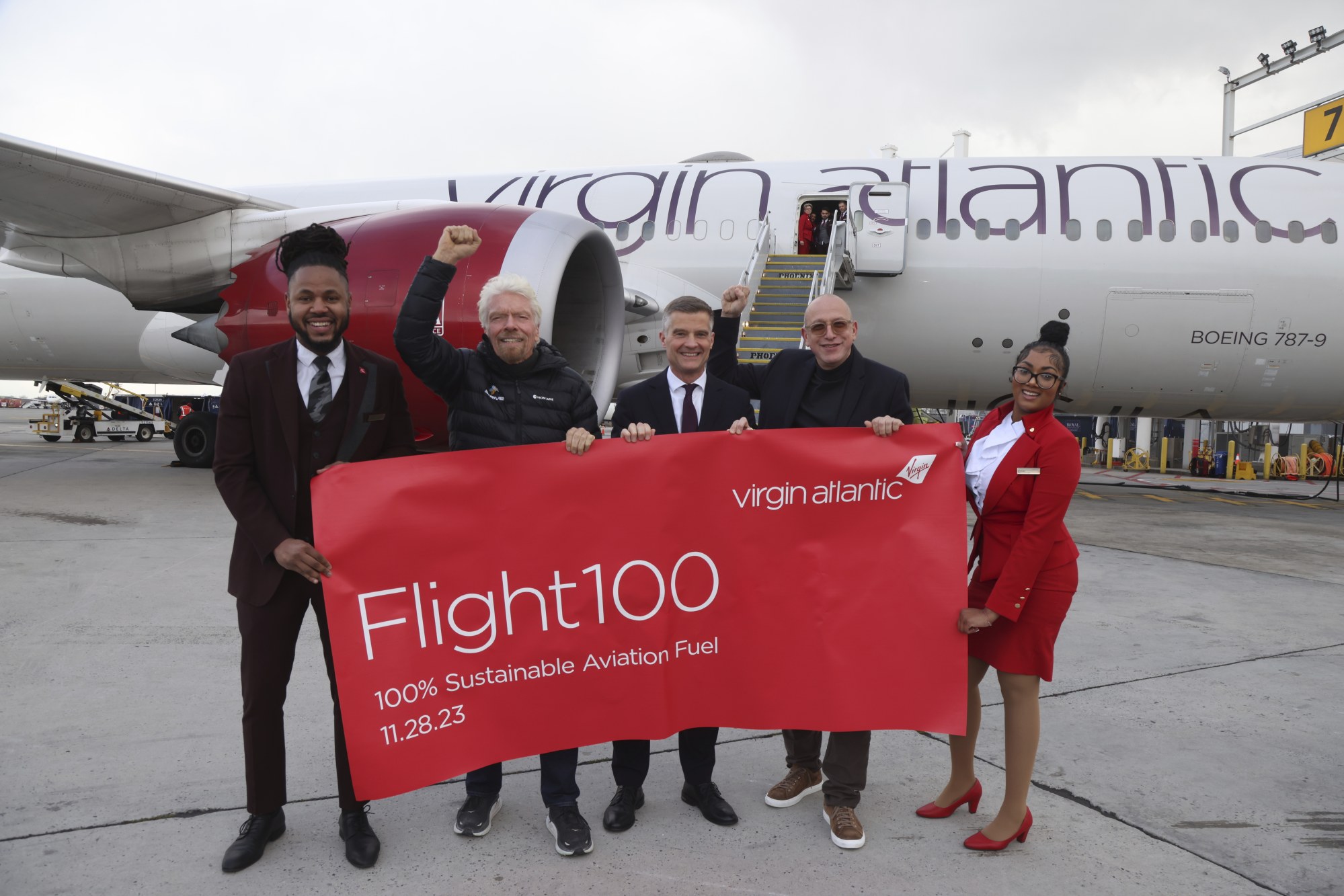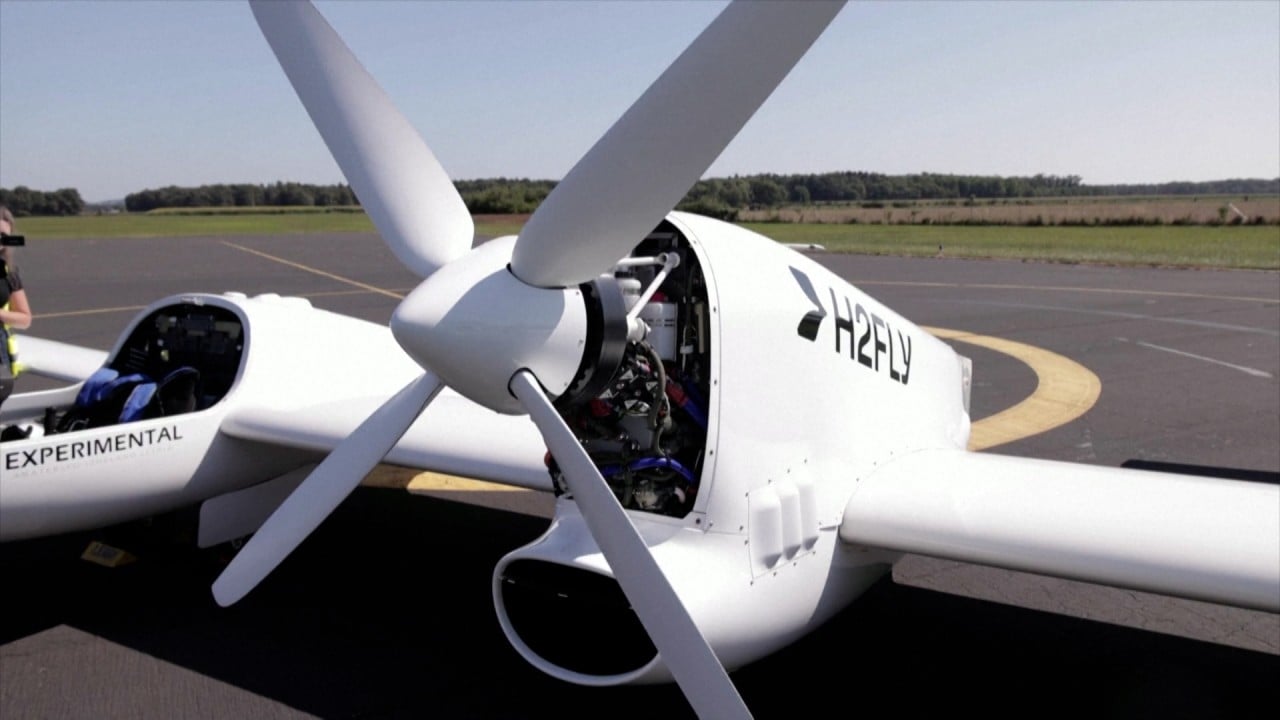The first commercial airliner to cross the Atlantic on a purely high-fat, low-emissions fuel flew Tuesday from London to New York in a step toward achieving what supporters called “jet zero”.
The Virgin Atlantic Boeing 787 flight was powered without using fossil fuels, relying on so-called sustainable aviation fuel made up largely of tallow and other waste fats.
“The world will always assume something can’t be done, until you do it,” said Virgin founder Richard Branson, who was aboard the flight with others including corporate and government officials, engineers and journalists.
The UK Transport Department, which provided €1 million (US$1.27 million) to plan and operate the flight, called the test a “huge step towards jet zero” to make air travel more environmentally friendly, though large hurdles remain in making the fuel widely available.

While governments have long talked about decarbonising air travel, the transition has been moving at the pace of a dirigible.
Sustainable aviation fuel, which reduces greenhouse gas emissions by about 70 per cent, is the best near-term way for the international aviation industry to achieve its net zero target by 2050, the US Energy Department said, though it called the goal aspirational.
Mexico finally sells presidential plane once called an ‘insult to the people’
Mexico finally sells presidential plane once called an ‘insult to the people’
But SAF accounts for less than 0.1 per cent of total global jet fuel in use today and costs about three to five times as much as regular jet fuel.
While this is the first jetliner to make the transatlantic journey using only the sustainable fuel, it was not a commercial flight and not the first jet to do so.
Gulfstream Aerospace was the first to make the crossing earlier this month with a business jet powered only by the eco-fuel. Air France-KLM flew from Paris to Montreal two years ago using a mix of petroleum-based jet fuel and a synthetic derived from waste cooking oils.
Environmental group Stay Grounded described Tuesday’s flight as “greenwashing” – a term used for companies that use deceptive claims to convince the public that their products or operations are environmentally friendly.
“While public focus is on this one seemingly green flight, there are 100,000 daily flights using fossil fuels,” said Magdalena Heuwieser, from the Stay Grounded network.
Finlay Asher, an aerospace engineer who has worked for Rolls-Royce, quoted by Stay Grounded, said that the production process was a “technological dead-end” that “can’t be sustainably scaled beyond a few per cent of existing jet fuel use”.
Greenpeace also criticised the event.
“The two potential sources of genuinely sustainable aviation fuel are both severely limited in scale,” warned Greenpeace chief scientist Doug Parr.
“The waste used as feedstock for the bio-kerosene in this flight is not available in quantities large enough to make a big impact on aviation’s emissions.
“And the CO2 from Direct Air Capture and green hydrogen from electrolysis – both used to make e-kerosene – are very expensive to produce.”
Parr added that “the only effective way to deal with aviation emissions in the short term is by tackling demand, and any suggestion otherwise is just pie in the sky”.
The flight came ahead of the United Nations Cop28 climate negotiations from this week in Dubai, where the future of fossil fuels will be hotly debated.
Associated Press, Reuters and Agence France-Presse


